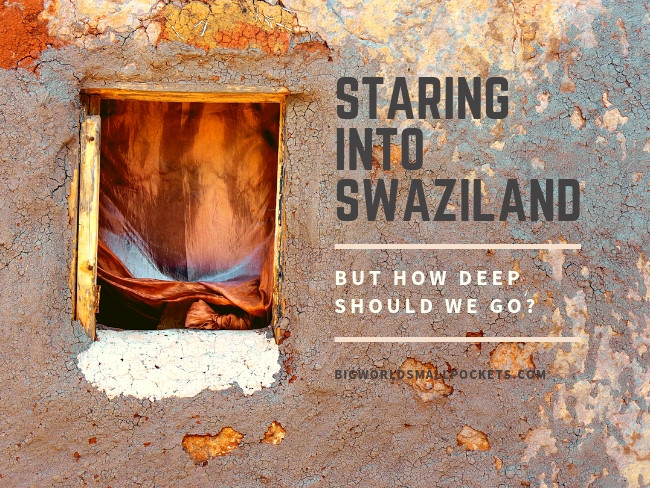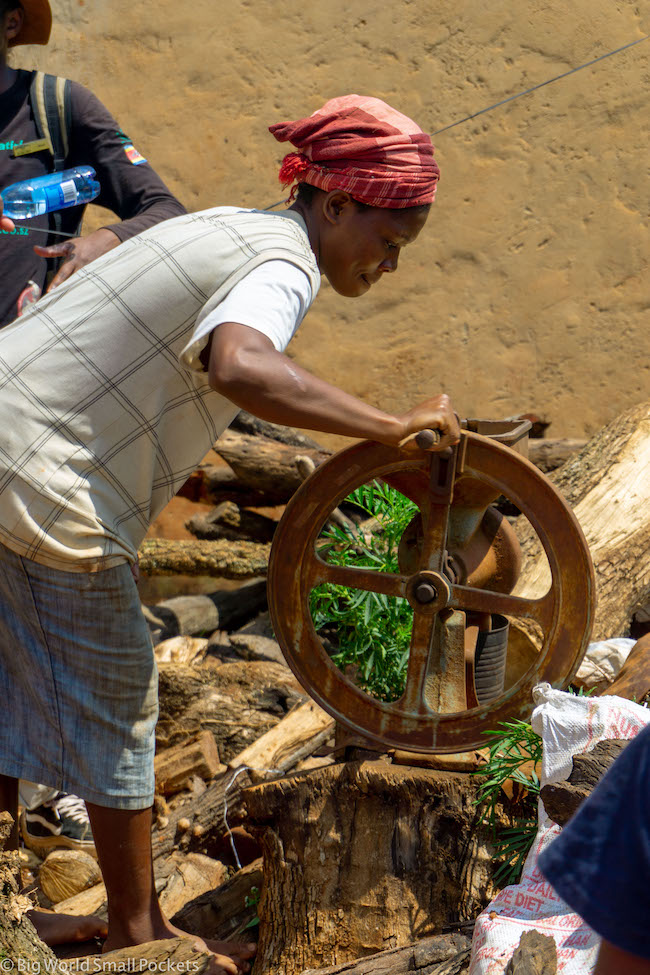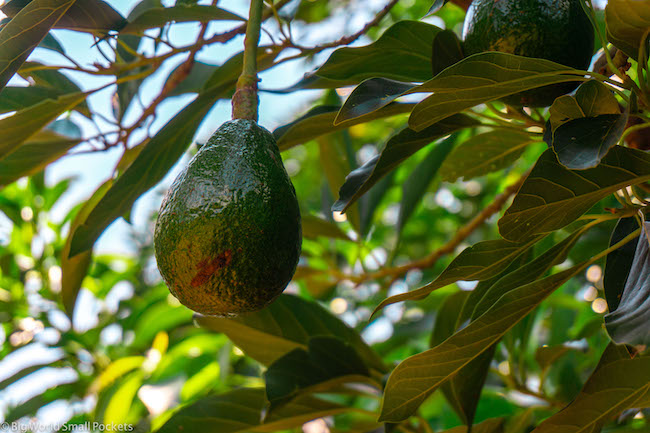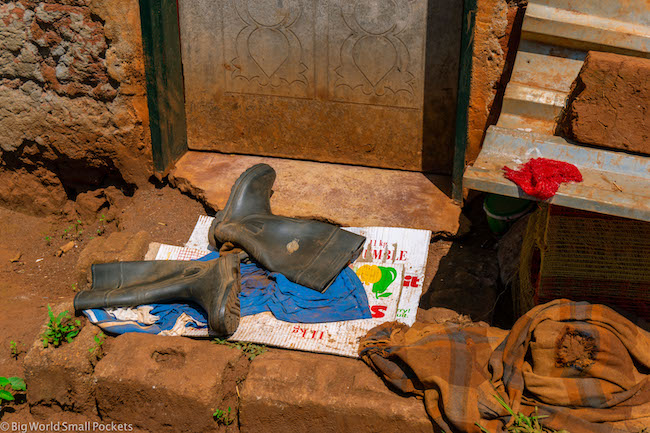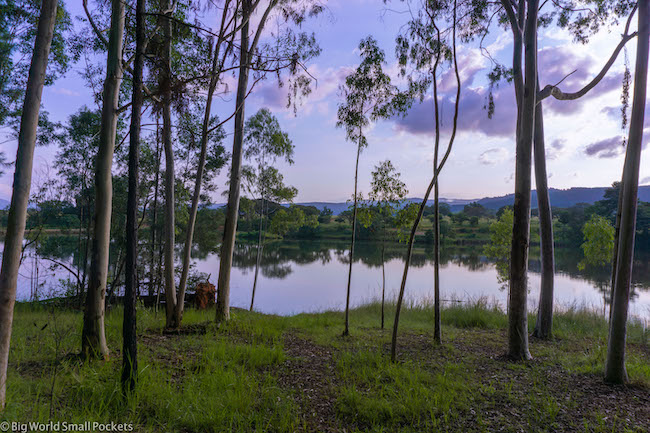Countries that have different cultural values to our own present the traveller with an amazing opportunity to learn and witness something else, something “other”, but this can also come with its own set of moral dilemmas to navigate.
And while, to some people, this may sound either boring, complicated, or both; for me, it’s exactly what gets me going and is one of the primary reasons I travel.
I absolutely love having my comfort zones pushed, as much physically as mentally, and being confronted by a completely variant culture is an amazing way to bring into question just some of the things we all cling to so tightly as “right”, “true”, “real” or “normal”.
And one country that I recently travelled, which yet again threw me into this position, was the tiny Kingdom of Eswatini (formerly Swaziland) in Southern Africa and here’s why…
Related Posts
- 10 Top Things to Do in Eswatini
- How to Safari in Kruger on a Budget
- 5 Epic Southern Africa Itineraries
This page contains affiliate links meaning Big World Small Pockets may receive a small commission on any purchases at no extra cost to you.
Grab Your Copy of How to Travel Africa for Less

My ultimate guide to travelling Africa on a budget is now available, meaning you can finally get ALL my top tips for adventuring around all, or parts, of this amazing continent in one handy eBook, including…
- Full Planning & Preparation Guides
- Detailed Destination Info
- Complete Packing & Gear Lists
- Top Money-Saving Tips & Hacks
Click Here to Check It Out!
Different Cultural Values
The reason I’m writing this article in response to my short time in Eswatini is because this country has several very obvious and mainstream cultural differences to western society.
Even though I was only in this country a short time, learning just a bit about the culture and politics of Eswatini will highlight at least a few major differences to you.
Yes, doing even the most minimal background research about this country will make you aware of the fact that Eswatini is an absolute monarchy where polygamy is legal.
In essence, what these 2 things mean is that democracy as a western concept is not really practised in Eswatini – even though there is an elected government, all decisions must be ratified by the King, who has the absolute say on all political and judicial matters.
This suggests that there is an absence of what we in the west would call “division of power” in the administration of Eswatini.
Polygamy is also legal in this country, meaning men can take any number of wives at once and have multiple numbers of children with each simultaneously.
Certainly, as a westerner, a believer in democracy, equality, freedom and universal human rights, these are cultural values and practises that seem quite alien to me.
What travelling in Eswatini forced me to do was bring into question, yet again, my own values, how I judge others’ values, whether I should judge others and indeed, whether universal notions of “human freedom”, “rights” and “democracy” are true, should be upheld and if so, then by who?
See what I mean about travel getting me going!
Yup and I’m just getting started!
My Subjectivity
But let me first make my position clear.
As all good studies must do, I want to be wholly transparent about my own position and the lens through which I viewed Swaziland and am writing this piece.
Of course, I do not claim to understand the culture of Eswatini on any significant level.
Having not studied this country in depth or travelled here for a long time, I certainly cannot claim to be an expert, or really even deeply knowledgeable.
It is, as a tourist, that I write this piece, as a traveller, one who took some time, a guide and a cultural trip to learn a little about this country and went to view it with an open mind and an eagerness to learn.
I am, and forever will be, a cultural outsider here.
When You Can Start to Judge?
Which of course brings me to the first question that Eswatini raised in my mind – namely how long does someone have to be in a country, how much does one have to have read or have experienced, or how many visits does one have to have made, in order to become an expert?
Or even less than an expert, even just an informed individual?
What are the markers that one has reached this level?
And is it only experts or “the informed” who are allowed to judge a culture, who can take a moral stand on issues concerning the population of that country, their rights and freedoms?
Can those not born or raised in a particular culture really ever understand it? Or be awarded the authority of expert?
Is it ever possible for a person who was once a cultural outsider to become an “insider” – that is, one who is not viewing everything through their own (read. different) ethnocentric lens and set of values?
When is it that we can start to judge a culture which does not seem to uphold universal human rights and freedoms?
If the answer is never, are we sentencing people around the world to being left helpless, abandoned, neglected or abused?
If the answer is always, are we at risk of destroying a world of plurality, one in which “western” values, possibly masquerading as “universal” concepts, continue the legacy of colonialism in a different, more subtle form?
Should different ideas, practices and beliefs be allowed to jostle together in a thrilling, diverse map that holds western values in equal stead to those from the south and the east even if they are often in conflict with one another?
Even if they seem to impinge upon “universal” human rights?
What is the Role of the Traveller?
And going further than this, my travels in Eswatini caused me to think about the role of the traveller in all this.
Of course, we are most certainly neither the expert nor the informed, so what does this mean for our opinion?
What space does it or should it hold?
Can we justify making our own judgements about the cultural values of countries we visit for only a short time?
Are we allowed to judge or form opinions?
If we are, the question remains whether these judgements can be considered valid given the lack of exposure and interaction we’ve had with the very culture we are judging.
Are any opinions we do form only to be held in our own personal sphere, never to be voiced publicity?
Is our role just to silently visit with our cameras, to capture and to witness, but never to make a comment?
Or is our role as travellers to visit a new place with a keenness to learn more than we tell, to soak up more of the new and different than we expound about our own rehearsed viewpoints?
Isn’t it better, ultimately, to use the points of difference we encounter as travellers as an opportunity to question ourselves and those views we hold so strongly as black and white facts?
To shine the torch upon our own behaviours, rather than to continually hold others up under the lens of inspection?
For in doing so, are we not, whether we like it or not, inadvertently still part of a morphed colonialism, a cultural imperialism?
Do we not sit on a pyramid of superiority continuing a long, entrenched pattern in which one world view sailed around the world trying to dominate others’ views?
That said, even without our judgement, we can’t deny that just our presence in a foreign land with cameras and smartphones and western clothes and access to a whole world of information at our fingertips, might still be contributing to this.
For is it not true that even if we do not judge a country’s cultural practices, do not speak an opinion on it, nor write one down, we are still ultimately, in all likelihood, accelerating the downfall of the very thing we have to come to see?
Our culture oozes and influences through our mere presence, it cannot be helped.
Isn’t it, after all, exactly our culture that has led us to stand as a traveller in a rural village in Eswatini anyway?!
And so the moral gauntlet continues…
What is the Role of the Travel Blogger?
And then, what does this all mean for the travel blogger?
Where do we fit into all this?!
Well, that’s a good question because if we don’t have the right to judge as travellers, we definitely don’t have any more authority to judge as traveller bloggers!
But if we don’t have the right to judge, what are there to write about, what are we to tell those who want to know?
Do we just stick to the landscapes, the cities and shy away from the controversy?
Is this morally just, sensible or cowardice?
Do we speak out other cultures with practices we find difficult to bear, do we mention them without comment or do we omit those parts all together?
How do we deal with this?
I honestly, and unsurpisingly, don’t know the answer to any of these questions.
I wanted to explore the reality and response to my time in Eswatini, not shy away from it, but not pretend I have a “universal” solution to the situation either.
Which is exactly why this piece so full of questions.
But I like questions.
I think questions are healthy.
And if there is to be any conclusion to this confusion, perhaps it is a reminder for all us to keep questioning, critically, our own behaviour, patterns, values and positions.
To keep re-evaluating them to ensure that they best represent what we want this world and our life to look like.
That they come from the heart, a place of goodness, even if that doesn’t always mean answers.
For if there is one thing that travelling to Eswatini thrust to the forefront of my mind again, it’s questions!
Questions that get me fired, passionate, challenged.
I love those questions.
And I loved my travels in Eswatini for this.
Just enter your details below and I'll email it you - simple!
Information will be sent to the email provided above
Mini Travel Guide to Eswatini
When to Visit?
The drier winter months between April and September are definitely the best time to visit Eswatini.
Looking for an Eswatini Tour or Car Rental?
African Budget Safaris are a family company, operating out of South Africa, who are complete pros at ensuring you get the best trip in their incredible home continent.
With years of experience, I’ve personally met the lovely couple who own the company, and can definitely attest to their passion for sharing Africa with the world!
Offering a huge range of tours across Southern and East Africa, and with budget always at the forefront of their minds, these guys are the perfect choice for ensuring us shoestring nomads get to see as much of Africa (including those off the beaten track spots like Eswatini) as possible in the most rewarding way.
Specialising in group trips, African Budget Safaris are also perfect for solo adventurers, as travelling with others means you’ll automatically make friends with people from across the world and get to share your unforgettable Africa with them too – perfect!
4 Packing Essentials for Eswatini
#1 Lonely Planet Guidebook – The South Africa, Lesotho & Swaziland Lonely Planet is excellent and very helpful for any trip to Swaziland with lots of top tips and recommended places to stay.
#2 Sunhat – Eswatini gets seriously warm, even in winter, and protecting yourself from those UV rays is crucial during any outdoor activities. I love this design from Hello Sunshine.
#3 South African Power Adapters – Eswatini follows South Africa in terms of their power outlets, which are unique the world over, so make sure you come prepared with the right adapter.
#4 Camera and Lens – I love my Sony A6000 mirrorless, which was ideal for capturing the wildlife and landscape of this amazing country.
#5 Insect Repellent and Anti-Malarials – I recommend a 30% DEET spray to reduce the risk of malaria when travelling in Eswatini.
Travel Insurance for Eswatini
World Nomads offers simple and flexible travel insurance. Buy at home or while travelling and claim online from anywhere in the world.
Alternatively, if you’re a long-term traveller, digital nomad or frequent remote worker seeking travel health cover, check out Safetywing’s Nomad Insurance policies.
Travel Money in Eswatini
When it comes to paying for things in this country, you want to ensure you’re not being charged overseas transaction fees or getting poor exchange rates when using your card abroad, which is why I always take my Wise card away with me wherever I travel.
The easy way to spend abroad with real exchange rates, no markup and no sneaky transaction fees, you can use your Wise card just like a debit card in Italy… and it links easily with Google and Apple pay – sold! Get yours here.

